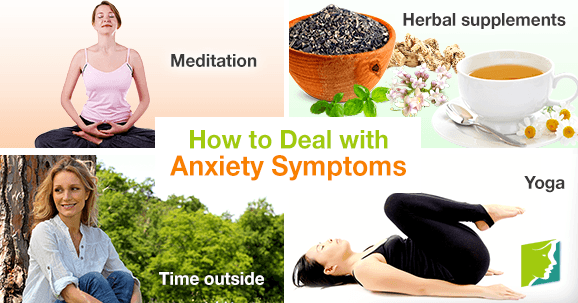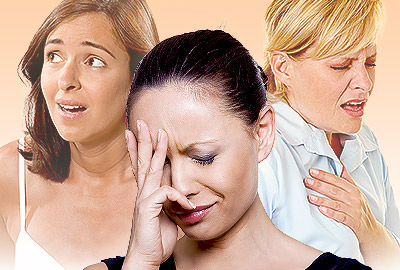Up to 75% of Americans experience moderate to high levels of anxiety every day. Such high levels of stress can make life harder and exacerbate many other health conditions. During menopause, the increased stress can be closely linked to decreased levels of estrogen in the body, which trigger stress response functions, worsening your feelings. The anxiety experienced as a result of these changes in hormone levels can be exacerbated further by certain lifestyle and environmental triggers.
Meditation
Deep breathing and meditation are known to decrease anxiety levels. They allow you to put your worries to rest and find a center of calm within. This strengthens your coping abilities day to day and makes you more adaptable to unexpected changes.
First, inhale for 10 seconds deep into your belly, making sure the belly rises. Then, exhale completely for 10 seconds. Do this 5 to 10 times, focusing on your breath and consciousness. After that, breathe normally and continue closing your eyes and meditate, focusing on your belly, breath, or forehead. Ambient music and low lighting will help you relax during your practice.
Yoga
Yoga has become known as one of the best mindfulness-based stress reduction techniques. What this means is that when you are more aware of your body - everything from your breath entering to the tension in your shoulders - you become more able to relax it. As your breath deepens and you focus on releasing stagnation through the poses, your mind also becomes more tranquil. In fact, the balancing, stretching, and strengthening has such a calming effect on your body that gamma-aminobutyric acid (GABA) is released. This neurotransmitter increases relaxation.
Time Outside
One major factor in the buildup of stress is spending too much time indoors. When you stay in familiar places, you are constantly reminded of day-to-day concerns. Go outside and get a change of scenery. The sights, colors, and sounds in nature are always changing and can help you rise above your worries. The vitamin D from the sun can also elevate your mood. Many notice that their concerns are reduced after spending some time outdoors.
Herbal Supplements
If you feel that your anxiety is brought on by menopause, then you may want to try phytoestrogenic herbs. These can restore your estrogen levels and reduce the stress response hormone cortisol. Two of the most popular herbal supplements known for their phytoestrogen content are black cohosh (Actea racemosa) and dong quai (Angelica sinensis).
Also, hormone-regulating supplements are the easiest and safest way you can balance your hormones and are very good for menopause symptoms (e.g., Macafem). They help alleviate hormonal imbalance and relieve menopausal symptoms.
Anxiety is extremely common, but it can be managed. Obsessive thoughts plague many of us, and they can weigh you down, making it hard for you to do the things you love most. Practicing these positive lifestyle changes to the best of your ability can provide effective relief during menopause or any time of life.
For more information on anxiety and treatments, follow the links below.
Sources
- DrPhil. (2014).Supplements for Menopausal and Hormonal Symptoms. Retrieved August 14, 2014, from http://www.mindbodygreen.com/0-11099/15-tips-to-balance-your-hormones-hint-you-dont-need-to-take-hormones.html
- MindBodyGreen. (2013).15 Tips to Balance Your Hormones. Retrieved August 14, 2014, from http://www.mindbodygreen.com/0-11099/15-tips-to-balance-your-hormones-hint-you-dont-need-to-take-hormones.html
- National Institutes of Health. (2012). Dong quai. Retrieved March 17, 2014, from http://www.nlm.nih.gov/medlineplus/druginfo/natural/936.html
- Office of Dietary Supplements. (2008). Black Cohosh. Retrieved March 17, 2014, from http://ods.od.nih.gov/factsheets/BlackCohosh-HealthProfessional/
- University of Maryland Medical Center. (2013). Roman chamomile. Retrieved March 19, 2014, from http://umm.edu/health/medical/altmed/herb/roman-chamomile
- University of Maryland Medical Center. (2013). Stress. Retrieved March 19, 2014, from http://umm.edu/health/medical/reports/articles/stress
- University of Maryland Medical Center. (2013). Valerian. Retrieved March 19, 2014, from https://umm.edu/health/medical/altmed/herb/valerian




